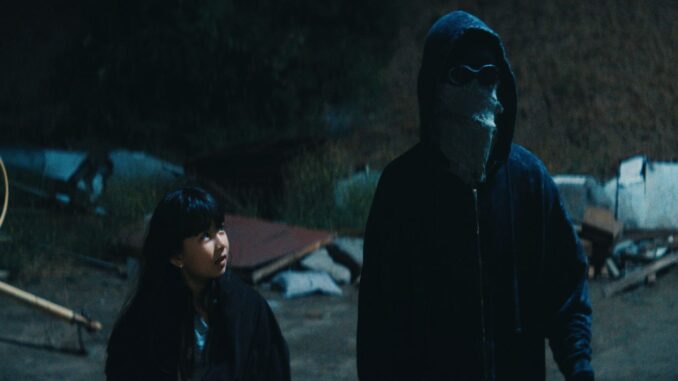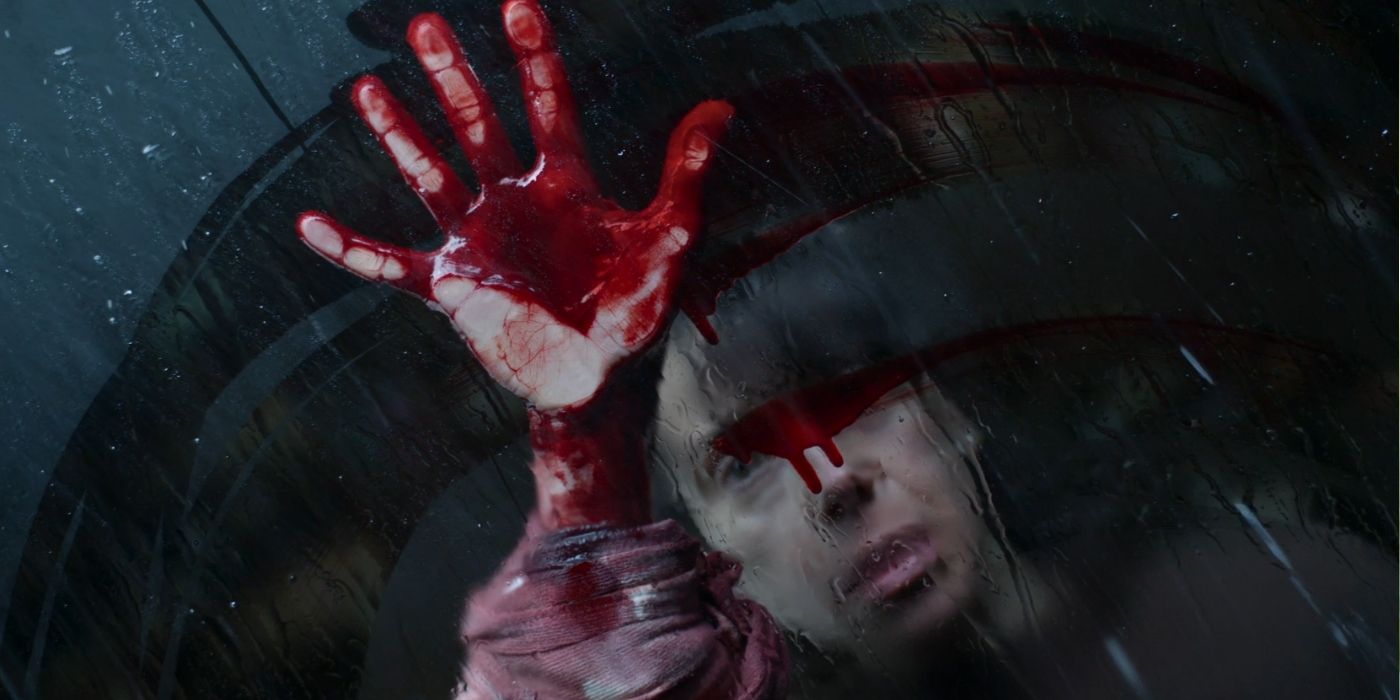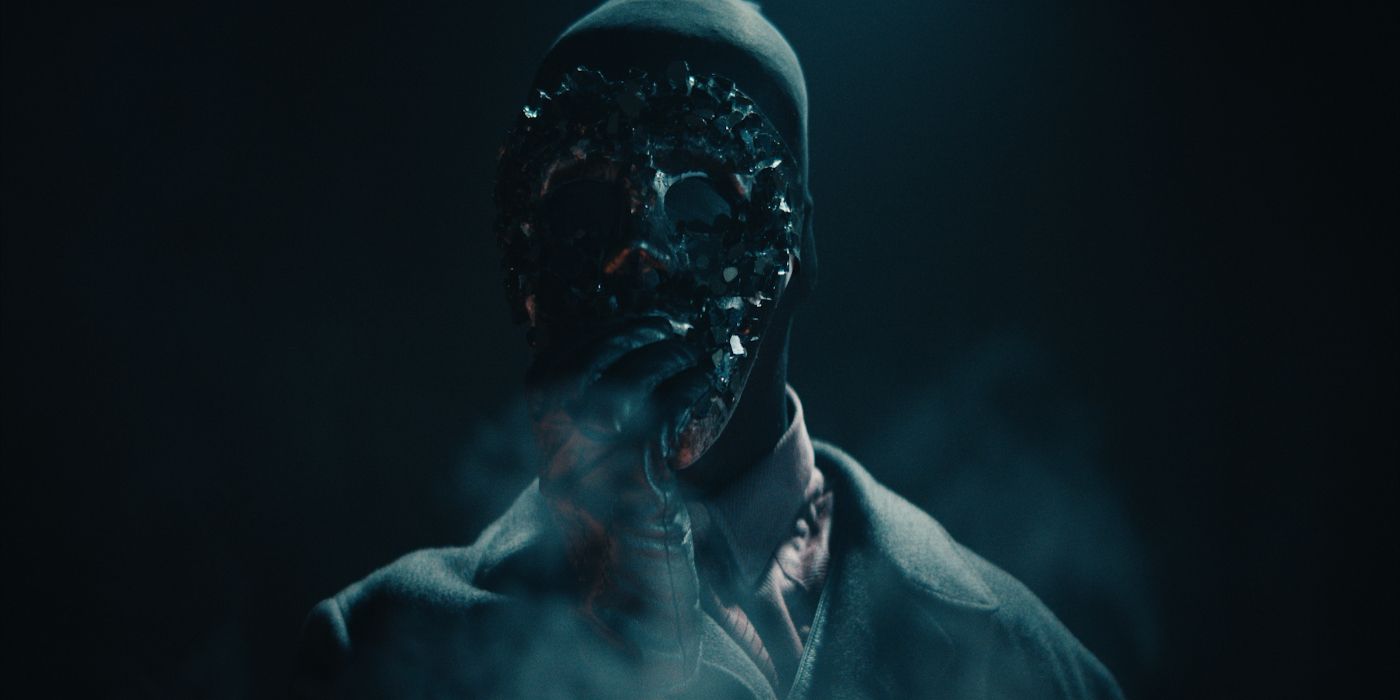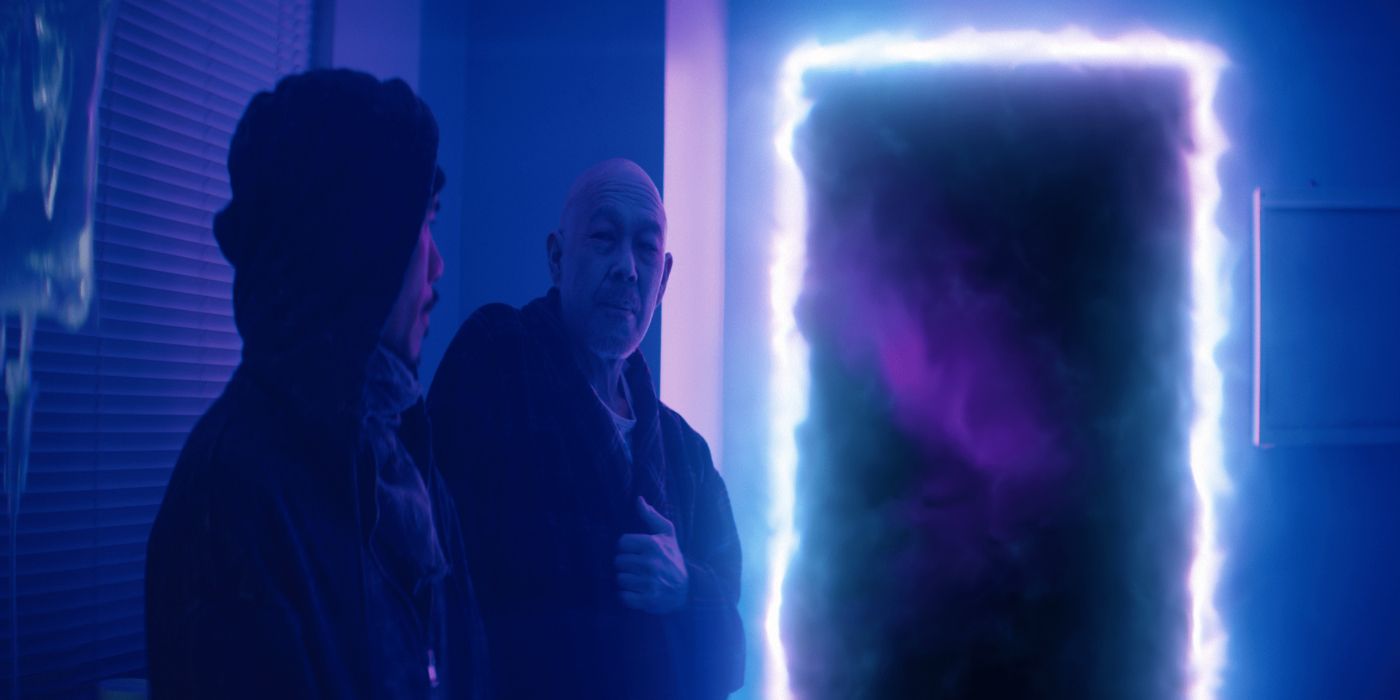
atOptions = {
‘key’ : ’99f760876e68289f009a69ed593fee0e’,
‘format’ : ‘iframe’,
‘height’ : 90,
‘width’ : 728,
‘params’ : {}
};
Death manifests in many different ways on screen. In the Final Destination movies, it’s an ominous force that likes to pull Looney Tunes-inspired kills. In The Sandman series, it’s a comforting presence In the Marvel Cinematic Universe, Death looks like Aubrey Plaza. And in Ba, the feature film debut of writer and director Benjamin Wong, death is a curse that reflects the day-to-day grind of work and the struggle to support a family. It blends magical realism with a gritty crime drama, but never quite lives up to its potential.
Ba follows Daniel (Lawrence Kao), a single father who unwittingly accepts a job as a grim reaper to provide for his daughter Collette (Kai Cech) after they are evicted from their home. Forced to hide his appearance from his daughter and the outside world, Daniel tries to work off his debt to secure his freedom while keeping a safe distance from his daughter, putting a strain on their relationship. When child protective service agent Macey (Shelli Boone) looks into Collette’s case, Daniel has to find a way to quit his deathly job or lose his daughter.
Ba
- Release Date
-
March 10, 2024
- Runtime
-
79 minutes
- Director
-
Benjamin Wong
- Producers
-
Elizabeth Ai
Cast
Promising Start Let Down By a Lackluster Ending
Ba shares many similarities with the short-lived cult series Dead Like Me: Both involve ordinary people who become grim reapers, forcing them to balance their commitment to serving death with their daily lives. But where Dead Like Me had a more comedic take on the material, Ba centers on family drama. The movie is filmed like a grounded crime film, which starts out promising. But it quickly becomes apparent that more thought needed to be put into the story beyond the initial hook.
Part of this is due to the film’s short runtime. At 89 minutes, the movie doesn’t overstay its welcome. But it also sacrifices vital screen time that could have been used to flesh out its characters and the rules for how death and the act of reaping work within this world. Shortly after the film’s opening prologue, the film jumps forward six months to show Daniel working as a grim reaper, skipping over how he adjusted to his life-altering decision. Daniel, and therefore the audience, is then clued in on details about how his position as a grim reaper works, even though this is information he probably already knows. It tells the audience instead of showing it, and what it tells you isn’t that engaging.
Ba partially recovers thanks to solid lead performances by Lawrence Kao and Kai Cech. Kao not only gives off the fatherly warmth that’s needed to sell this character’s tragic position, but also has a winning enough personality that the audience is willing to look past some of Daniel’s more questionable choices in the second act. Meanwhile, Cech is the movie’s breakout star, and like Maia Kealoha in the recent live-action version of Lilo & Stitch — another film with a foster care subplot — she is the movie’s heart and soul. Cech’s Collette projects maturity beyond her years, but she also behaves like a kid in a naturalistic way that matches the movie’s more grounded tone.

Related
‘Final Destination: Bloodlines’ Revisits Death’s Most Twisted Tricks
With a heartfelt farewell to the late, great Tony Todd, ‘Bloodlines’ is the best in the ‘Final Destination’ series — since the first two, at least.
Ba‘s script issues are obvious in the film’s climax, which introduces a last-minute threat in the form of Brad (Jonathan Medina), the husband of the social worker who takes in Collette after she is separated from her father. Before Brad says anything, it’s obvious he is an abusive figure. He harms Collette the second his wife leaves the room, and can somehow explain the injury to his wife — a social worker — who believes Collette was the aggressor. This sadly follows a continued pattern in the media that depicts social workers and foster families, people who are just looking to help kids escape potentially bad situations, as being harmful.
The decision to feature an abusive foster father feels cliché, but Brad has nothing to do with Collette and Daniel’s arcs. He isn’t some symbolic personification of the rift between Collette and Daniel, but someone the audience meets 10 minutes before his death. Death is also chasing Daniel, making the new character unnecessary. Death is the actual threat to Daniel and Collette’s family, and should be the final obstacle for them to overcome. Ba sacrifices what should be an emotional father-daughter reunion for an ending that clashes with the movie’s overall tone.
Style Goes a Long Way to Cover Up Some Flaws
Ba is a movie with a lot on its mind. It wants to be about the day-to-day struggles of providing as a single parent in a job with no room for growth, barely making enough to stay afloat. But the movie doesn’t have much interest in this metaphor beyond a surface-level acknowledgment. Ba wants to tackle many different ideas, but isn’t given the space to explore any one of them in depth. This extends to the movie’s world-building, which feels overly explained but ill-defined. Ba‘s supernatural stakes soon become a distraction from the father/daughter story line.

Related
‘Bring Her Back’ Is a Nearly Flawless Follow-Up from the Directors of ‘Talk to Me’
Strong performances from Sally Hawkins and the young cast buoy Danny and Michael Philippou’s sophomore feature.
This is a shame, because Ba‘s grounded aesthetic makes for some striking visuals, particularly a streetwise grim reaper who walks the night wearing a hoodie. Ba’s visualization of Daniel as a reaper is a creative mix of the traditional skeleton in a cloak, combined with the zombie-like texture of cold, rotting flesh that Daniel sees every time he looks at a reflective surface. It is a striking image, one from which the film could have benefited more.
What Ba might lack in substance it makes up with style, as it stretches its small budget to blend the supernatural with the backstreets of Los Angeles County. Wong’s use of flashbacks, communicated through intimate hand-held smartphone recordings and comforting home videos, serves as a great visual contrast to the deathly cold tones of the present-day scenes.
Despite not living up to its exciting premise, Ba is a promising debut for Benjamin Wong, who mixes elements of horror, crime dramas and coming-of-age stories to create a unique film. Even though Ba might not be as good as Darkman or The Pursuit of Happyness, describing it as a cross between those two titles feels warranted.
atOptions = {
‘key’ : ’99f760876e68289f009a69ed593fee0e’,
‘format’ : ‘iframe’,
‘height’ : 90,
‘width’ : 728,
‘params’ : {}
};




Leave a Reply